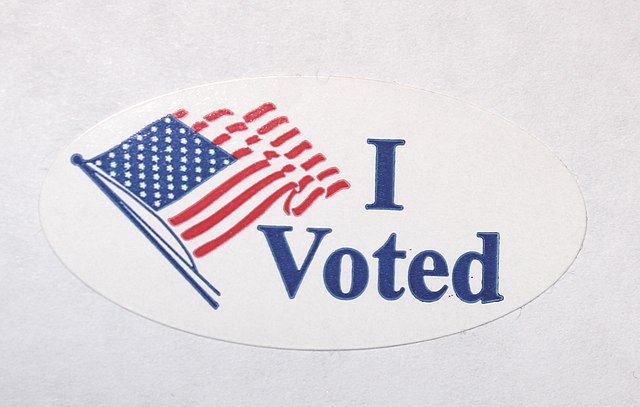To many, voting is a burdensome task. Staying informed on all the relevant candidates and going to the polls seems, to many Americans, a thankless endeavor. Americans find themselves so bereft of motivation to engage in politics that they don’t vote. In our modern electoral system, in most places, the outcome of an election is predetermined by partisan gerrymandering, meaning no single vote is likely to affect the outcome. Even worse, many do not believe that any candidates on a ballot align with their values.
Since many believe that their vote couldn’t swing an election or make any real change, voting seems like a pointless activity to them. This is a miscalculation. In our democratic republic, every vote does matter and it is a sacred duty for citizens to exercise their right to vote. Regardless of one’s knowledge of politics or the candidate, it is still crucial for each United States citizen to vote in elections at all levels.
Most people today don’t recognize that going to the polling station and filling out a ballot represents the radical culmination of thousands of years of innovation in government organization. Democracy dates back to Athens in the fifth century before the common era. Decisions in Athens were made by an assembly of citizens. Various political philosophers also argued in favor of such political organization. English philosopher Thomas Hobbes wrote about the power of the people in his famous treatise “Leviathan,” the cover of which depicts the King of England made as an assemblage of common people. Hobbes thought that even absolutist monarchs only had power because the people consented to be ruled. Hobbes and other political philosophers influenced the founding of the United States of America. Voting and the notion that the government is for the people and by the people was not common at the time of our founding. It was, in fact, a revolutionary notion when it was baked into the United States in the 1770s.
The founders were not foolish in their desire for a democratic republic. They saw voting as a tool to promote inclusivity and foster societal unity. The United States is so large that no single group or interest can dominate the others. Instead, constituent groups with varying beliefs and interests must unite and form coalitions. James Madison argued in Federalist 10 that America’s size would force factions to compromise. When people vote, they add to the fabric of democracy by injecting their own values and beliefs into the polity’s consideration. Their vote combats the power of singular interests.
Voting was not a political struggle which ended in 1776. The United States, in its infancy, like ancient Athens, guarded citizenship and the right to vote. The right to vote was a privilege reserved for society’s elite. Voting was, and in many ways will always be, the endpoint of every movement to reduce discrimination in America. Voting as an act represents the struggles, sacrifices and victories of those who fought for the right to engage in democratic processes. Throughout history, marginalized groups battled to gain suffrage and break down barriers preventing their involvement in government. From the 20th century suffragette movement to the civil rights campaigns of the 1960s, the quest for suffrage has been defined by perseverance and a steadfast belief in democracy’s strength. It is a disservice to the legacy of suffrage movements for people to squander rights that were won through long and brutal campaigns.
In the modern day, voting serves as a barrier against authoritarianism and tyranny. Voting is the seawall to the erosion of America’s values. The modern era is characterized by an emphasis on division rather than unity. Trust in democratic institutions around the world is critically low, allowing authoritarians to run rampant.
Voting is a safeguard against authoritarian tendencies. When people participate in elections, they show dedication to upholding the rule of law and protecting liberties. In democratic societies, elected officials are entrusted with making decisions on behalf of their constituents. When they do not, their constituents should remove them from positions of authority. Herbert Hoover wrote that “liberty rapidly atrophies with disuse,” in an essay decrying New Deal reforms which fundamentally changed the American system. The American people disagreed with Hoover and those New Deal reforms shaped the government of the United States today, which is the beauty of the American system – the people decided what they wanted. Hoover was right that danger is greatest when people become complacent with how the system works. When people choose not to vote they sign away the future to representatives who do not need to fear a reprisal from their constituents.
It’s essential to understand that the impact of voting goes beyond borders and resonates globally. In today’s interconnected world, where issues like climate change, economic inequality and human rights transcend borders, the choices made by voters in one country can have reaching effects worldwide. By participating in the process and advocating for policies that promote justice, equality and sustainability, individuals can address shared challenges and create a more fair and prosperous world for future generations. That only happens when people exercise their right to vote and make our leaders listen to what we want and need. To the people who are disillusioned with their government and with voting, there is but one remedy. You need to vote.
Brigid Baleno can be reached at [email protected].



















